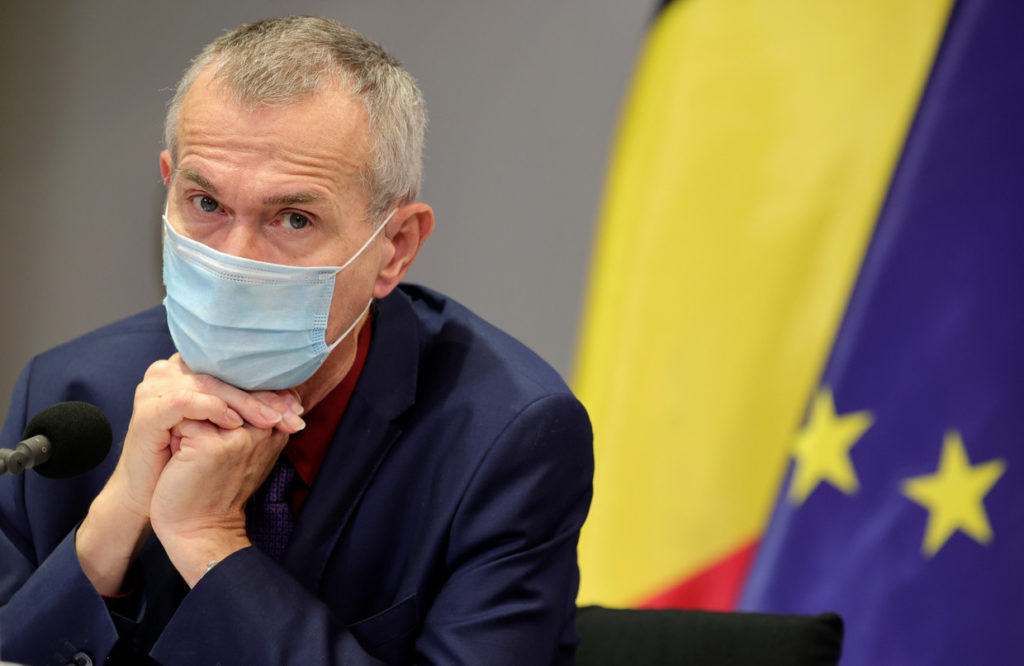Belgium is now officially entering the so-called "testing strategy 2.0," in an effort to better identify cases of coronavirus within the country, announced Federal Health Minister Frank Vandenbroucke during press conference on Monday.
The updated strategy will have three "lines of defence," which will help Belgium control the coronavirus, on top of the regular existing measures such as keeping your distance, wearing a face mask and only keeping one close contact.
First line of defence: PCR tests
People who feel sick should still contact their GP or a testing centre as soon as possible to be tested with a PCR test, stressed Vandenbroucke.
"The same applies to people who have had a high-risk contact with someone infected with the virus," he added. "The capacity is high: up to 150,000 per day. The PCR tests also make it possible to detect variants of the virus."
Nothing changes here, Vandenbroucke stressed, and those who test positive should still isolate themselves and avoid contact with others.
Second line of defence: antigen tests for staff who cannot telework
"This line of defence we are opening is very important: repeated preventive testing in companies, businesses, organisations," Vandenbroucke said. "For staff who cannot telework."
The federal government will make antigen tests available, for free, to companies and public services until 1 May 2021, as long as there is stock.
Related News
- Why Belgium only sells self-tests in pharmacies, while Germans buy them in supermarkets
- Rapid Covid-19 tests can be sold in pharmacies in Belgium for self-testing
- Bpost launches rapid covid tests for staff
"Currently, there are 570,000 rapid antigen tests at the federal level," he said, adding that Belgium has also ordered more than 500,000 additional ones.
These tests are taken - with a swab - by the company doctor, a physician, nurse, or someone else who has sufficient qualifications and training.
"This test does not have to go to a laboratory for analysis, and within fifteen minutes you know the result," Vandenbroucke said.
Third line of defence: self-tests
As previously announced, self-tests will be available in Belgian pharmacies from 6 April, according to the Corona Commissariat. With these tests, people can test themselves or a child, using a shallow nose swab.
"For people who are struggling financially, we will make the tests refundable through health insurance," Vandenbroucke said. "For each member of the family, they can buy a maximum of two tests per week at the pharmacy."
The copayment for people with an increased allowance is €1. For other people, there will be no refund, and the test will cost about €7 to €8, depending on the test.
The authorities stressed that using a self-test does not provide the same certainty possible with the classic PCR test, but they are a tool to know if you are highly infectious.
"By using them regularly, you can protect yourself and especially others, Vandenbroucke said. "For example, at a time when you are helping your grandmother or a needy neighbour to go to the doctor, or when you are visited at home by your cuddle contact."
Self-employed people can also offer extra protection by regularly using self-tests, but Vandenbroucke repeated that a negative result is not an "admission ticket" to take part in certain activities.
"It is a snapshot of someone's infectivity. Even if you test negative, you should still follow the other precautionary measures, such as hand hygiene, wearing a face mask and respecting the distance rules," he added. "Using a rapid test is a gesture of courtesy."
Maïthé Chini
The Brussels Times

